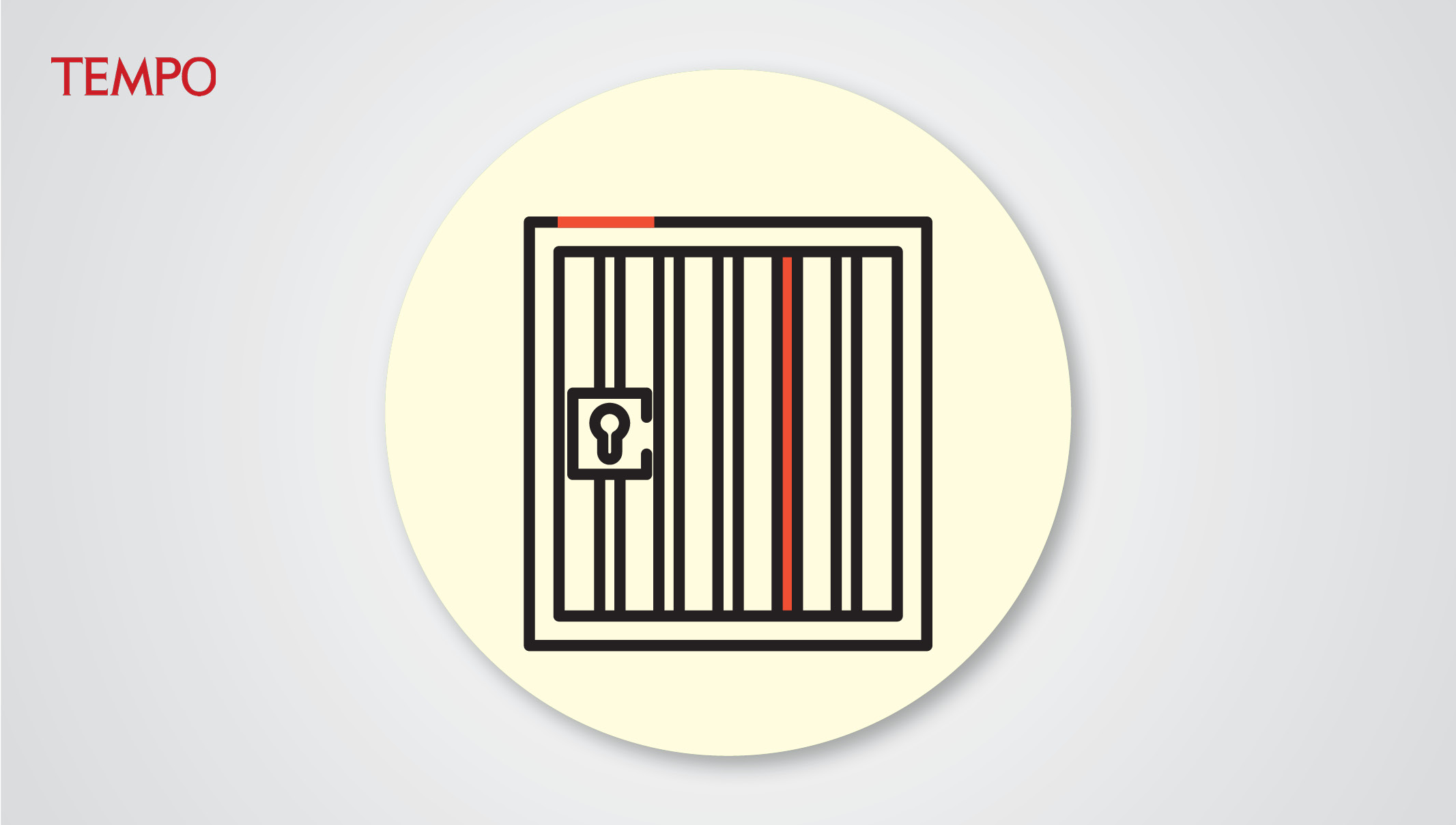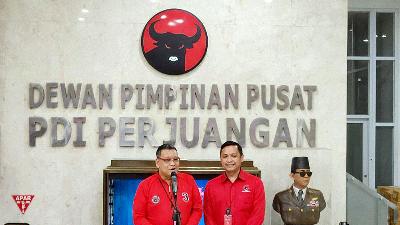The Drug Baron Training Institutions
Monday, September 30, 2024
The police arrested a drug baron who was operating from inside a prison. It is a chronic problem that remains unsolved.
arsip tempo : 174715363577.

OUR prisons are always the location of choice for drug barons to carry out their illegal business. Poor management and large numbers of officials who take bribes mean that the trade in narcotics worth trillions of rupiah continues.
The latest example is the case of Hendra Sabarudin, alias Hendra 32, an inmate of Tarakan Class II Penitentiary, North Kalimantan. Sentenced to death in 2012 for the supply of narcotics—a sentence reduced to 14 years by the High Court—he was arrested by police for controlling the supply of crystal methamphetamine from inside the prison.
Based on police findings, Hendra has been bringing the drugs from Malaysia to Indonesia since 2017. He is alleged to have links with Fredy Pratama, an Indonesian drug baron who is now on the run, and is known to be living on the Thai-Myanmar border region. Hendra reportedly have controlled the supply of drugs worth Rp2.1 trillion from jail between 2021 and 2024.
The story of Hendra reinforces the perception that prisons, which should be a place for rehabilitation of convicts, are in fact a place for people to learn how to become real criminals. Previously, Freddy Budiman, a death row convict, actually had more freedom to run his business network supplying millions of ecstasy pills when he was locked up in Nusakambangan Class IIA Penitentiary, Central Java, the highest security prison in Indonesia.
The purpose of prisons is to improve the behavior of the people confined there, so they become aware of their mistakes and do not repeat their crimes. However, this ideal aim has fallen apart because the government has failed to build a good prison system.
The biggest failure is caused by—among other things—poor supervision and the high number of crooked guards in prisons. The most obvious example is the fact that convicts are free to use telecommunications equipment. If all prisons in Indonesia were consistent in the implementation of their tracking of mobile phone signals, convicts’ access to people outside could be ended.
The large number of crooked officials, both prison guards and police officers tasked with carrying out narcotics raids, is also a latent problem that has never been solved. In the case of Hendra, for example, police suspect the involvement of prison guards and National Narcotics Agency officials in allowing the drug baron to continue his illegal business activities.
The poor oversight of our prison system is closely tied tothe overlapping responsibilities within the Ministry of Justice and Human Rights. Technically, prisons are implementing units under the control of the Directorate-General of Corrections. But, in matters of funding and oversight, they are under the Secretariat-General of the Ministry of Justice.
This dualism of authority is the main reason why there have been no reforms to the prison system. There should only be one echelon official responsible for any illegal practices in prisons.
Without any radical improvements, our prison will continue to be good ‘training’ places for convicts. These prisons can train a chicken thief to become a major criminal, or a drug user to be a narcotics baron.











